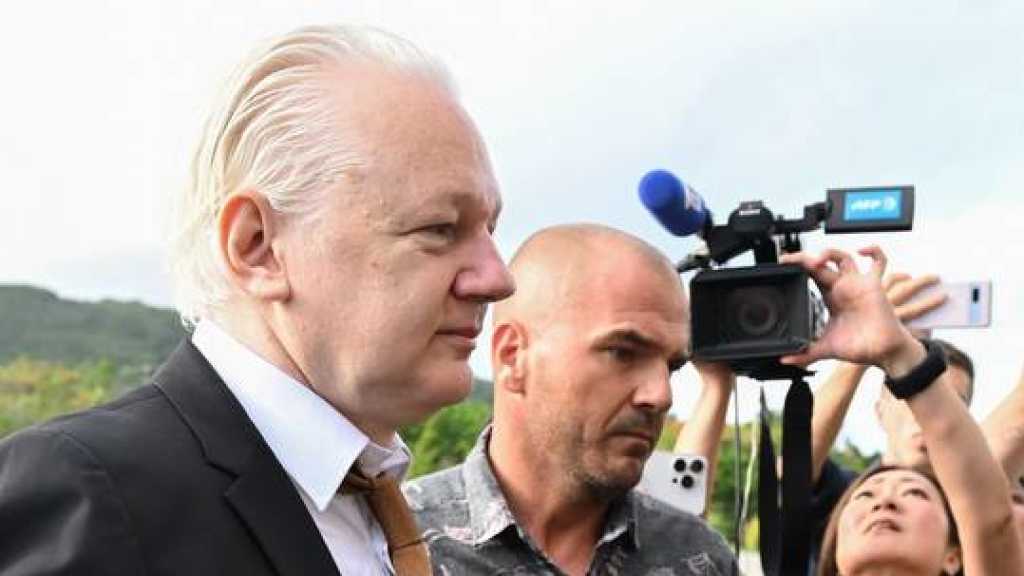Assange Pleads Guilty to Espionage

By Staff, Agencies
WikiLeaks founder Julian Assange has pleaded and been found guilty in a US court to a single espionage charge. He is now free to return to his native Australia, having already served five years in a British prison.
Assange pleaded guilty to one count of conspiracy to obtain and disseminate national defense information at the United States District Court for The Northern Mariana Islands in Saipan on Wednesday morning. He was sentenced to the time he had already served in London’s Belmarsh Prison shortly afterwards, meaning he will not see the inside of a jail cell.
Assange was accompanied in the courtroom by Australian Ambassador to the US Kevin Rudd, Australian Ambassador to the UK Stephen Smith, and his lawyer, Jennifer Robinson. Asked by Judge Romana Manglona whether he was pleading guilty or not guilty, he responded “guilty.”
The former WikiLeaks chief told Judge Manglona that he believed that the First Amendment to the US Constitution protected his publication of classified material, and that “the First Amendment and the Espionage Act are in contradiction with each other.” However, he added that he is pleading guilty because “it would be difficult to win such a case, given all the circumstances.”
The outcome of Wednesday’s hearing was widely known in advance. “We anticipate that the defendant will plead guilty to the charge…of conspiring to unlawfully obtain and disseminate classified information relating to the national defense of the United States,” the US Justice Department wrote in a letter to the court on Tuesday. “We expect [Assange] will return” to Australia after the day’s proceedings, the department added.
Assange’s 14-year fight for freedom began in 2010, when he was arrested by British police over ‘sexual’ assault charges in Sweden that were later dropped, Assange jumped bail in 2012 and was granted asylum in the Ecuadorian embassy in London. He was arrested again in 2019 when Ecuador revoked his asylum, and spent the next 1,901 days in Belmarsh.
The WikiLeaks founder was released from Belmarsh on Monday, two months after the Wall Street Journal reported that his lawyers were in talks with US officials about a potential plea deal. Assange was preparing to mount a final appeal against his extradition at the time, and the WSJ’s sources claimed that US President Joe Biden wanted to reach an agreement rather than deal with the “political hot potato” of a journalist arriving in Washington to face criminal prosecution so close to November’s presidential election.
Comments
- Related News




